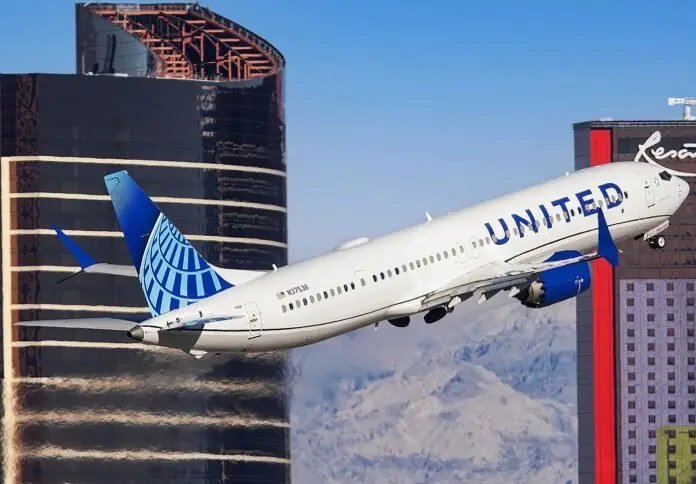Staff Reporter
United Airlines maintained its full-year profit forecast on Tuesday but took the unusual step of presenting an alternative outlook in case the U.S. economy slips into recession, describing the economic landscape as “impossible to predict.” Regardless, the airline anticipates profitability.
In its first-quarter earnings report, the airline cautioned that a recession could impact profits this year, yet noted that booking trends remain steady.
The company reaffirmed its earlier guidance from January, projecting adjusted earnings per share between $11.50 and $13.50. However, in a recession scenario, it expects adjusted earnings to drop to between $7 and $9 per share.
“The Company’s outlook hinges on the macroeconomic environment, which we believe is exceedingly difficult to forecast with any confidence this year,” it stated in a securities filing.
United Airlines also announced plans to reduce flights starting this summer to align with disappointing domestic travel demand, while international bookings for higher-priced trips continue to thrive.
The airline will cut domestic capacity by about 4% beginning in the third quarter. Competitor Delta Air Lines is also scaling back its growth plans this year.
CEO Scott Kirby emphasized that United will persist with its multiyear strategy, which has enabled the airline to succeed in various demand environments.
“This approach has provided us with industry-leading margins during favorable times, and we expect to further enhance our advantage even in challenging economic conditions,” he stated in an earnings release.
In its first quarter, United Airlines reported a profit of $387 million, or $1.16 per share, a significant turnaround from a loss of $124 million, or 38 cents per share, in the same period last year. Adjusted earnings, which exclude one-time gains from aircraft sale-leaseback transactions, reached 91 cents per share, surpassing Wall Street’s expectations of 76 cents.
The airline’s unit revenue for domestic flights declined by 3.9% compared to last year, while international routes saw a unit sales increase of over 5%.
Total revenue for the quarter was $13.21 billion, up more than 5% year-over-year, though it fell slightly short of analysts’ projections of $13.26 billion, according to LSEG. Capacity increased nearly 5% from the first quarter of 2024.
United Airlines noted that future bookings have remained stable over the past two weeks, with premium-cabin bookings rising 17% compared to last year and international bookings up 5%. However, the airline did not disclose figures for domestic coach-cabin demand.
Looking ahead, United expects second-quarter adjusted earnings per share to range between $3.25 and $4.25, aligning with market estimates, and cites strong demand for premium and international travel.
Here’s a summary of United Airlines’ Q1 performance compared to Wall Street expectations, based on estimates compiled by LSEG:
- Earnings per share: 91 cents adjusted vs. 76 cents expected
- Revenue: $13.21 billion vs. $13.26 billion expected

